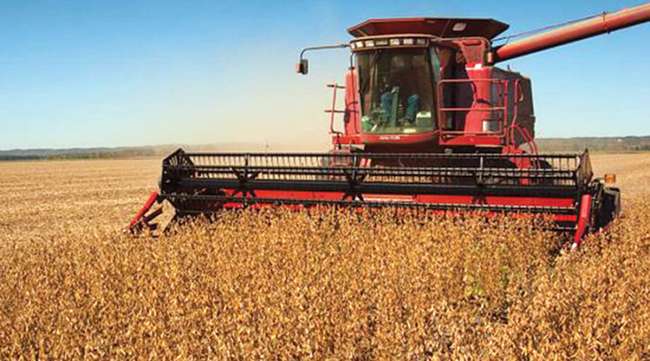Biden Faces Frustration From US Farmers Over Biofuel Policy

[Stay on top of transportation news: Get TTNews in your inbox.]
President Joe Biden’s re-election campaign has had a tough week. Lingering in the background is a boom he touted for American farmers that hasn’t panned out, creating one more thorn in his side as he vies to win favor in crucial swing states.
At the heart of the matter is production of biofuels, which can be made from crops like soybeans and corn, or from waste products like used cooking oil. The fuels benefit from government initiatives, regardless of whether the ingredients are produced in the U.S. or overseas, pushing fuelmakers to import raw materials whenever it’s more profitable.
A flurry of incentives under Biden’s landmark climate bill, along with a growing number of state programs, are spurring greater demand for fuel ingredients of all types, but especially those made from waste fats and oils, which typically boast a small carbon footprint and in turn are highly valued under policies aimed at fighting climate change.
U.S. biofuel producers are increasingly making renewable diesel and sustainable aviation fuel from raw materials that come from Asia and South America. Imports of used cooking oil from China and waste beef fat from Brazil have climbed to a record, eroding demand for U.S. crops.

Biden
“The U.S. is designing rules to help our competitors and our competing countries’ farmers,” said Gordon Denny, an agricultural consultant and former procurement director at Bunge Global.
While agriculture isn’t capturing the political headlines, the perception that American growers are being left behind has prompted both Republican and Democratic U.S. senators in recent months to push the Biden administration to address the issue. And all this comes at a time when U.S. farm income is poised for the biggest decline since 2006, which means farmer frustration could help boost turnout of rural pro-Republican voters in key battlegrounds states like Michigan and Wisconsin.
“To me, it’s one of the biggest fiascos of the Biden administration policy,” said Bill Haugen, an agricultural land manager in South Dakota. “We are currently producing all this crop here and, in order for them to use tax credits, we are going overseas now to get product?”
Take the case of a new facility in rural Georgia for making sustainable aviation fuel. While the plant is able to churn out ethanol made from American-grown corn, the company behind the facility has said it will use Brazilian sugarcane ethanol, which typically has a lower carbon score.

Brown
Sen. Sherrod Brown (D-Ohio), who’s also up for re-election, has recently joined a group of Republicans from other farm states to pressure the Biden administration over the surge in imports of used cooking oil, calling some of the biofuel policies “punitive” for U.S. agriculture.
To be sure, the Inflation Reduction Act — as Biden’s landmark legislation is known — is in its early days. And if other key issues are addressed — including higher blending mandates and proper regulation to tax credits so that U.S. growers can better compete with foreign rivals — there’s still “tremendous opportunity for American agriculture,” according to Monte Shaw, executive director of the Iowa Renewable Fuels Association.
RELATED: ATA, 8 Others Ask EPA to Adjust Biofuel Output Volumes
Still, uncertainty prevails over the extent to which farmers will benefit from federal incentives as details about a clean energy credit tax set to go into effect next year are still pending. While Biden’s initial guidelines have given U.S. corn-based ethanol a path to compete with foreign ingredients for the production of lower-emitting airplane fuel, critics say the multiple practice changes farmers would have to adopt for it to qualify aren’t practical.
Iowa corn farmer Jolene Riessen said she’s thankful the yellow grain was included as a so-called feedstock to produce aviation fuel. But she said the practices necessary for a farmers’ grain to qualify makes it like “farming with one hand tied behind your back.”
Kim Chipman, Tarso Veloso and Gerson Freitas Jr contributed to this report.
Want more news? Listen to today's daily briefing below or go here for more info:




